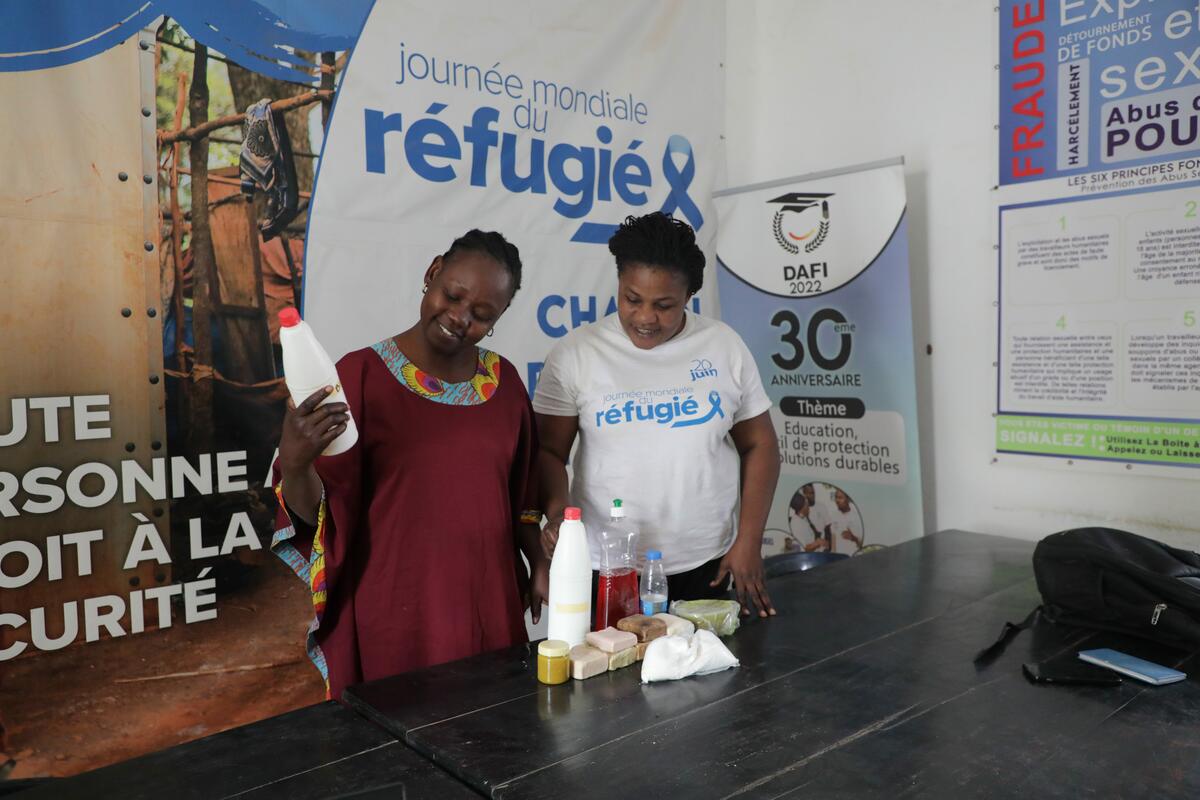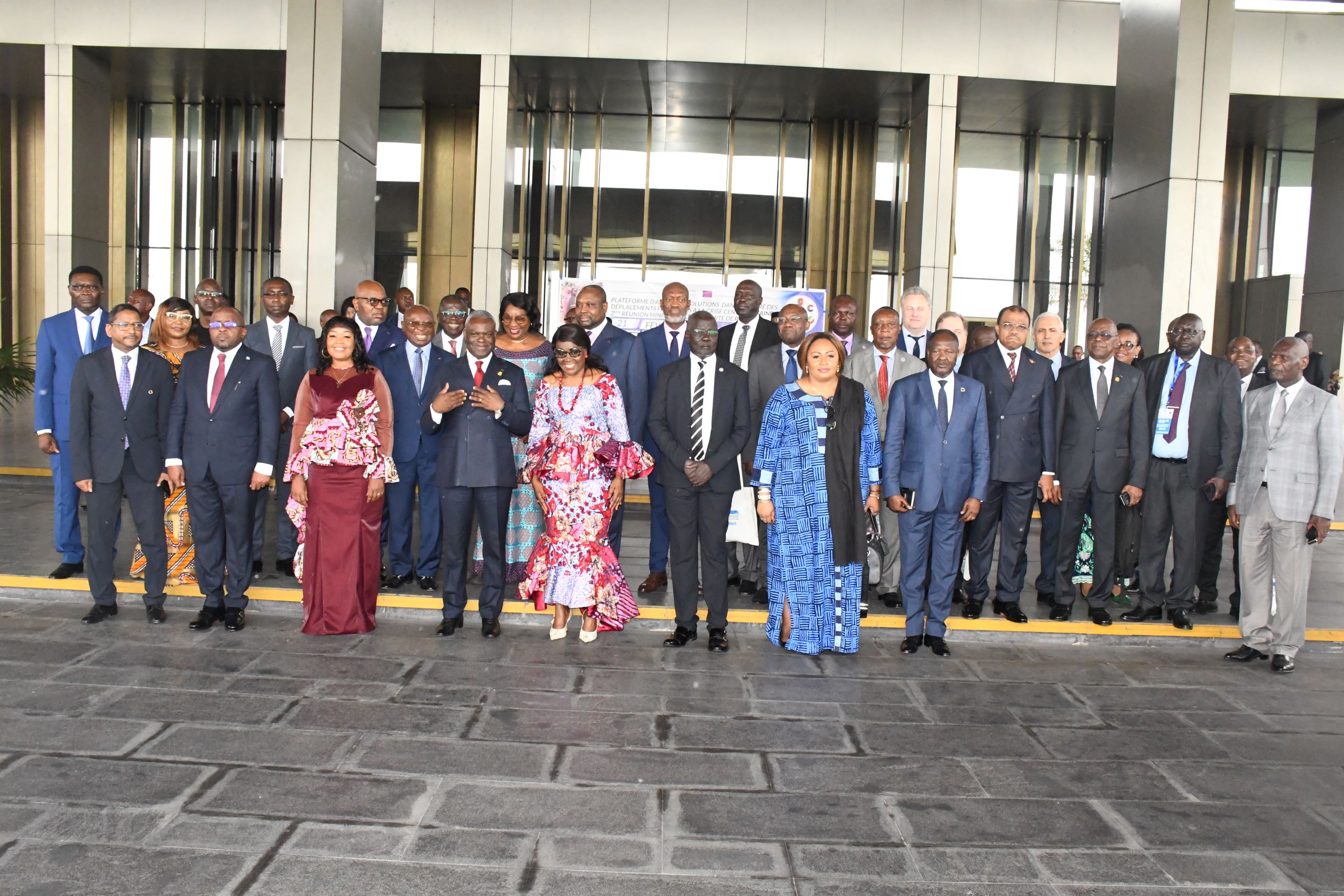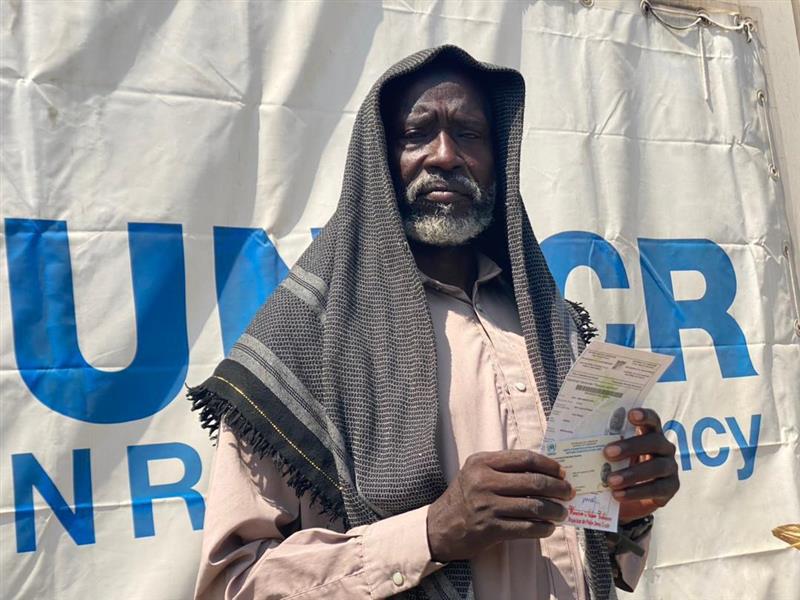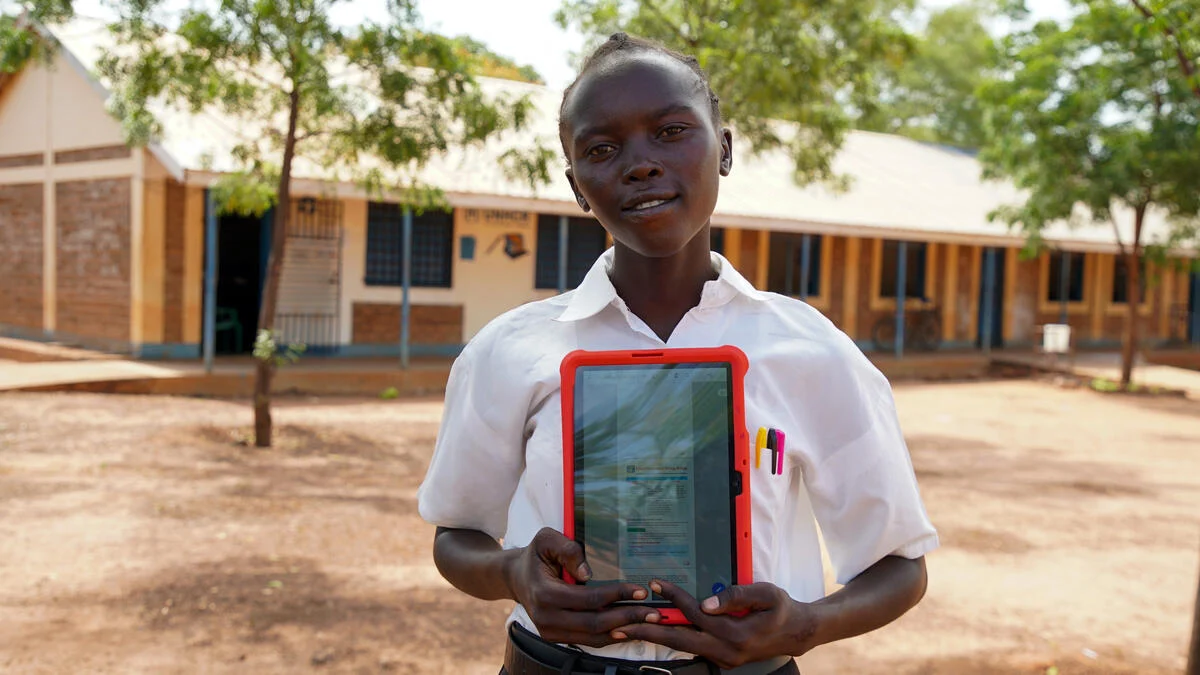Picking up the pieces in Mozambique and Malawi after Tropical Cyclone Freddy
Picking up the pieces in Mozambique and Malawi after Tropical Cyclone Freddy
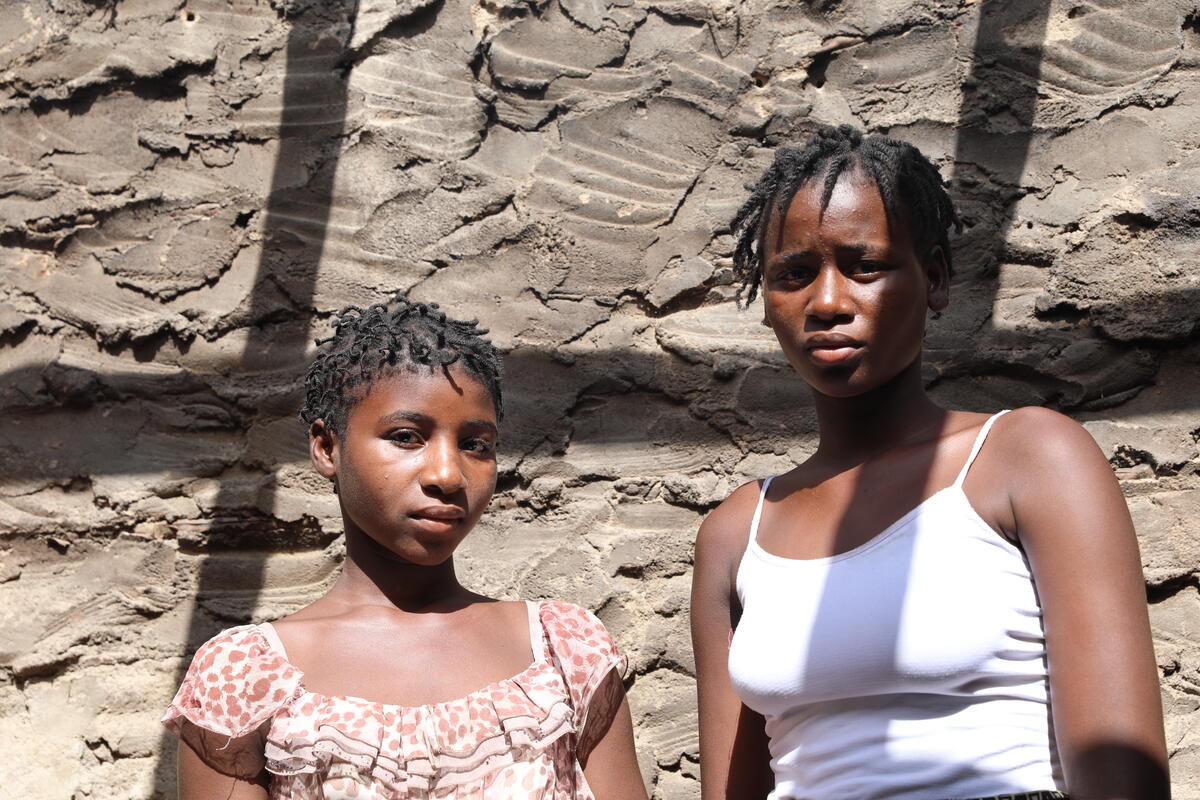
Marina and Flávia Polima in what was their living room after Tropical Cyclone Freddy destroyed the roof of their house in Gogodane Site.
Sixteen-year-old Marina Polima and her 11-year-old sister Flavia were dealt a devastating blow when Tropical Cyclone Freddy – one of the strongest and longest-lasting tropical cyclones on record – destroyed their home in Gogodane site for internally displaced people, in Mozambique’s central province of Zambezia.
Freddy first made landfall in southern Mozambique as a tropical storm on 24 February this year. After moving out to sea, it returned on 11 March as a cyclone, affecting over 1 million people in Mozambique, mainly in the Zambezia province, and displacing 184,000, amongst them Marina and Flavia.
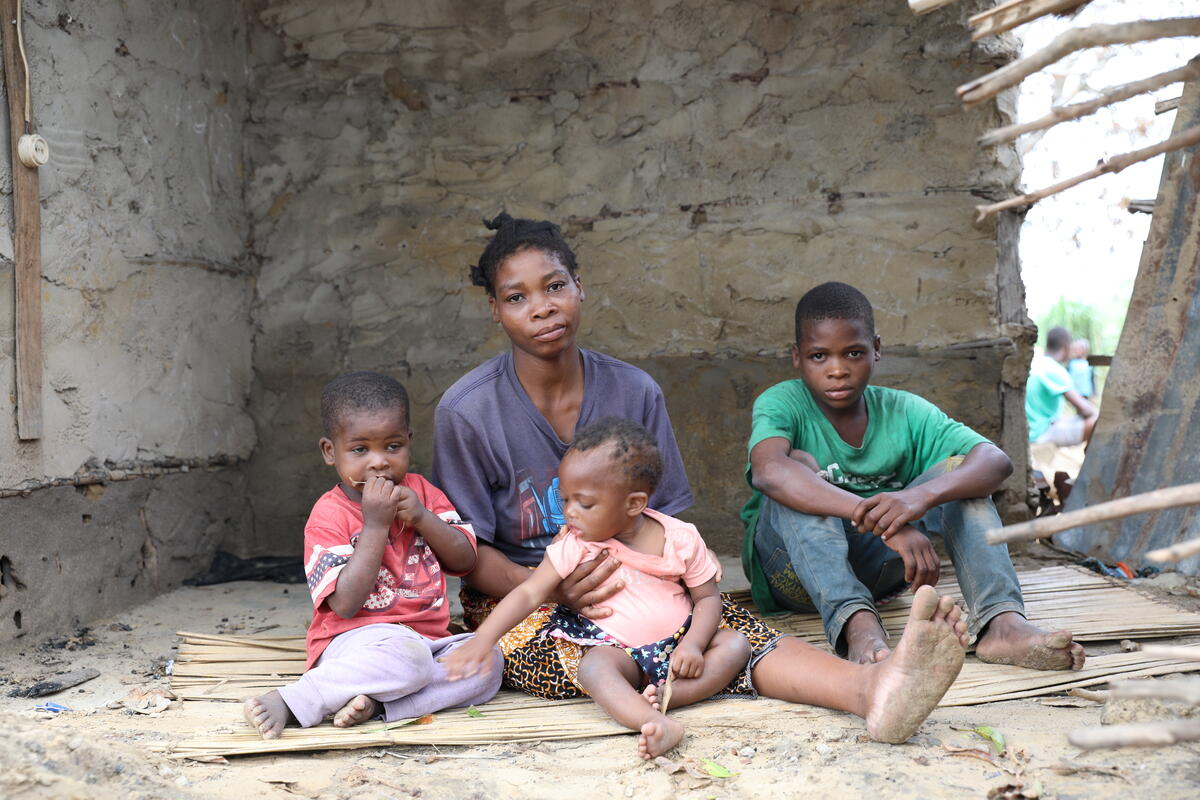
Janet and her three children lost their home, husband and father to the cyclone.
Ferocious winds of up to 170 kilometres per hour tore down the walls of their small house and stripped off the zinc roof. The sisters were left exposed to the elements, panic stricken and with nowhere to go.
It was not the first time the sisters had faced life-changing upheaval.
On 12 August 2020, they fled their home in the district of Macimboa de Praia, in Mozambique’s Cabo Delgado province, after a vicious attack on their village by non-state armed groups. Several people, including women and children, were killed and homes burned to the ground.
“We fled on the night of the attack, towards Pemba, the capital of Cabo Delgado, but we lost our parents and have not heard from them since.”
After fleeing to Pemba, Marina and her sister decided to travel to Zambezia province, nearly 900 kilometres away, in the hope of finding their mother’s relatives.
“We came here with a group of displaced people expecting our parents to follow but they never reached Zambézia,” says Marina. “I do not know if they are still alive.”
Hundreds of kilometres away in Southern Malawi, at Threeways Mountain, a village on the outskirts of Blantyre, Malawi’s commercial hub, Stephen Magambe, a 38-year-old casual labourer, was at home with his wife Jane and their three children, going about their usual evening routine on 13 March.
Initially, Stephen paid little attention to the incessant rain. It was the screams and shouts of his neighbours late in the night that brought Stephen and his family out of their home. A mudslide from a nearby mountain had gained momentum and soon engulfed Stephen’s village, destroying houses, burying people, and decimating crops. Stephen’s house and yard were not spared.
“We managed to get out of there with just our lives. My wife grabbed her handbag, a few important documents but little else.”
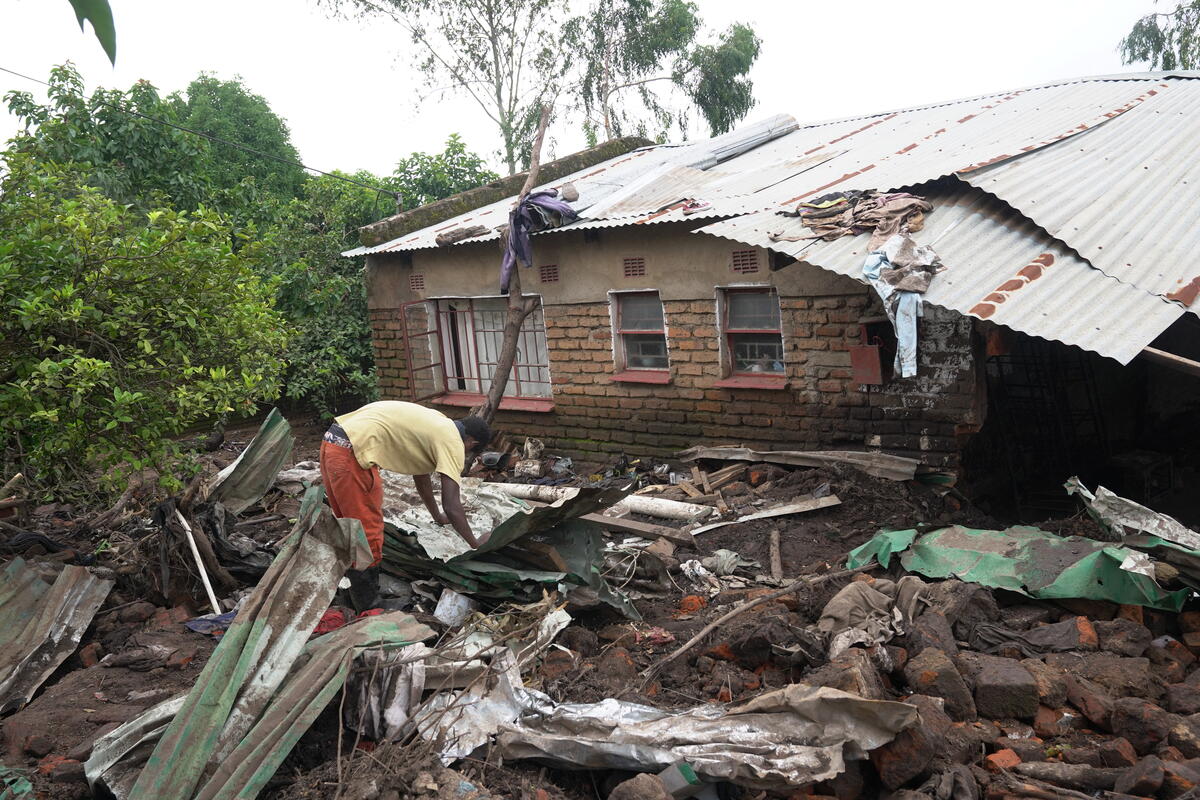
Stephen tries to salvage what building material he can find, after the cyclone destroyed his home.
Like Maria and Flavia in Mozambique, Tropical Cyclone Freddy had made the Magambes homeless.
UNHCR, the UN Refugee Agency, has rushed to assist thousands of families affected by Tropical Cyclone Freddy, in both Mozambique and Malawi.
In Malawi, where the cyclone displaced over 650,000 people from their homes, UNHCR is providing shelter and core relief items 12,477 people displaced by the cyclone in Blantyre, Mulanje and Phalombe.
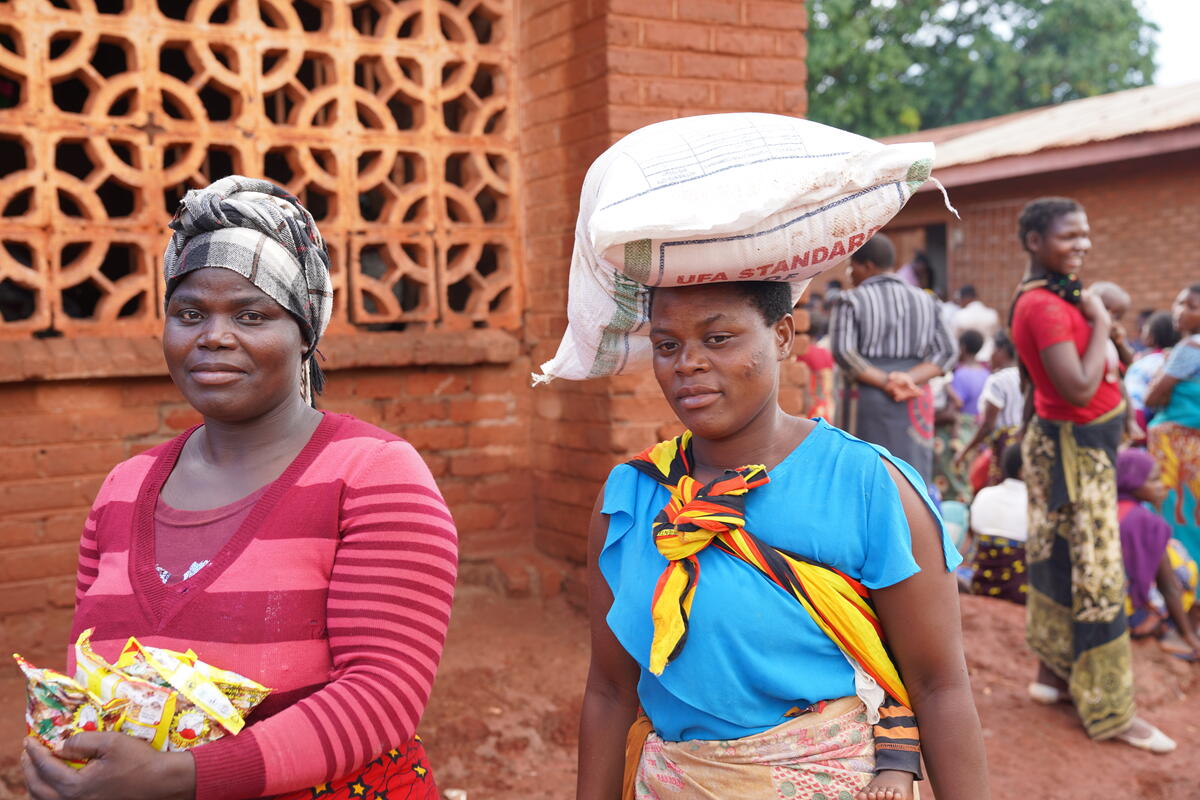
Lucy and Mercy collect maize flour and packets of soya mince to cook a meal for over 100 people.
In Mozambique, UNHCR worked closely with the local authorities, partners, and community leaders to assess the damage and provide emergency aid. After the assessment core relief items including blankets, solar lamp, jerry cans, mattresses and tarpaulins were distributed to 1,178 families in the districts of Zambézia province.
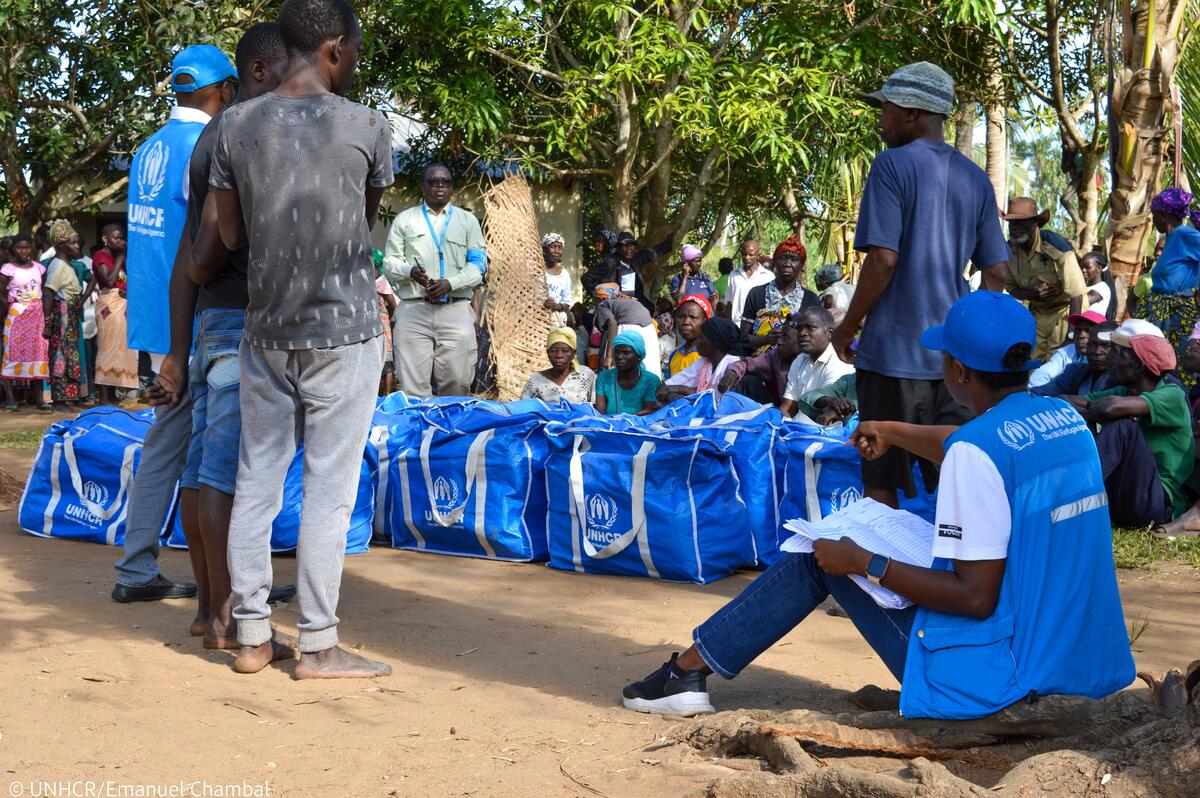
UNHCR distributed core relief items to the cyclone affected in Zambezia Province.
In Southern Africa and elsewhere, UNHCR is increasingly confronted with the impacts of climate change on people already impacted by conflict and humanitarian crisesLink is external.
“It is important to adapt quickly to the new normal of climate change by ensuring we have the means to help the people we serve while supporting communities hosting them,” says Samuel Chakwera, UNHCR representative in Mozambique.
Meanwhile in Malawi, Stephen and his family are trying to rebuild their lives.
“Since the cyclone hit, I have sleepless nights,” he says. “I have no peace when I see the destruction. Unfortunately, we have no other place to go to, so I must clean our home and think of rebuilding.”



